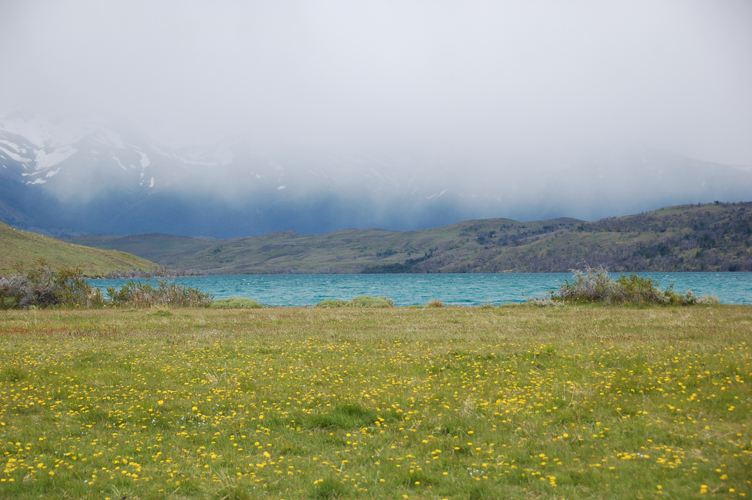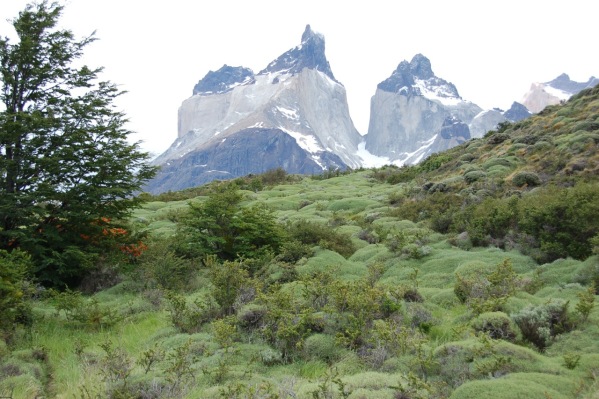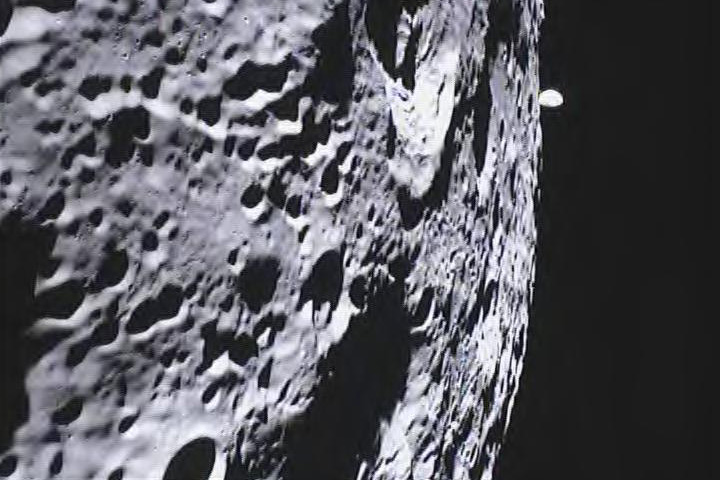SUNDAY PALEO / April 22, 2012
 Sunday, April 22, 2012 at 12:02AM
Sunday, April 22, 2012 at 12:02AM  Everyday should be Earth day. Patagonia.
Everyday should be Earth day. Patagonia.
FITNESS
Backwoods Workouts With the World’s Fittest Man
"Erwan Le Corre doesn’t care for treadmills or pumping iron. He gave up karate long ago and lost interest in playing soccer. Nor does yoga, yin to the yang of the weight room, hold much appeal for the 40-year-old Frenchman. Yet Le Corre is built like a track star and can climb a tree as quickly as cat. He is also is adept at carrying logs, tossing rocks, scaling cliffs, slogging through mud pits and wrestling." - Smithsonian.com
MODERN DISEASES
Daily Soda Consumption Increases Stroke Risk
"In the study, men and women who consumed one or more sugar-sweetened sodas per day were 16 percent more likely to have a stroke over a 20- to 30-year period, compared with those who drank no soda." - MyHealthNewsDaily Staff
Omega-3 Polyunsaturated Fatty Acids: Mechanisms and Clinical: n-3 PUFAs; The Potential for Atherosclerotic Plaque Stability
"The n-3 PUFAs have been shown to exert a range of anti-inflammatory actions, he said, which include decreased production of arachidonic acid-derived prostaglandins and leukotrienes, decreased production of inflammatory cytokines, decreased expression of adhesion molecules and decreased expression of degrading proteinases that can erode plaque caps." - Medscape
NUTRITION
Eat Like A Caveman: Nutrition Lessons From The Paleolithic Era
"Paleo diet–approved foods are high in soluble fiber, antioxidants, phytochemicals, omega-3 and monounsaturated fats and low-glycemic carbohydrates—the kind of nutrients that allowed our ancestors to have strong, lean and active bodies." - Wellness Times
Teach Kids to Read “High Fructose Corn Syrup” in Ingredient Lists
"So off to the candy aisle we went. We walked out of the store with a bottle of Mellow Yellow because it was cheap and the print was bigger. In case you don’t know what that is – I certainly didn’t – it’s a lemon soda that contains nothing but poisonous substances. If you try this experiment at home, whatever you do, don’t open that bottle!" - The Primal Parent
PALEO RECIPES
- Paleo Shrimp and Whitefish Ceviche, A Chilled Snack with Ginger
- Two Minute Tuna Salad
- Sweet BBQ Baby Back Ribs (and instructions for a DIY wood-fired grill)
TRANSPORTATION
In the market for an electric car? Check out the new Ford Focus here and here. Or, maybe you want to wait for the Sora electric motorcycle by Lito Green Motion; video here.
URBAN FARMING
Urban farming is reaching a new level. Not only are communities, such as Boise, increasingly embracing the concept, its benefits beyond food, such as in Green Gotham, are also increasingly being recognized. Now Michigan is proposing a “100-acre, $100-million urban-farming research center in Detroit” and Colorado State University is hiring its “first urban agriculture extension agent.”
Find a brief survey of urban farming in cities throughout the world here. Some people are even being salaried for their efforts.
FROM THE ARCHIVE

Review Part 2: In Search of the Perfect Human Diet
 Saturday, April 21, 2012 at 08:46AM
Saturday, April 21, 2012 at 08:46AM In the April 15 SUNDAY PALEO, I reviewed the first half of a new documentary, In Search of the Perfect Human Diet, by CJ Hunt. We left off with Hunt visiting Dr. Cordain and learning about the evolution of the human diet over the past two million years while they both walked down the football field at CSU in Fort Collins, CO.
Continuing his search, Hunt then travels to New York to interview physical anthropologist Gary J. Sawyer of The American Museum of Natural History. From Sawyer, Hunt learns about our Paleolithic ancestors and how they lived. When comparing the modern diet to that of our ancestors, Sawyer observes:
We do not know how to eat properly. We feed ourselves, but we fail to give ourselves proper nutrition.
While in New York, Hunt also interviews Leslie Aiello, PhD, of the Wenner-Gren Foundation for Anthropological Research. Dr. Aiello reminds us that our Paleolithic hunter-gatherer ancestors, in contrast to our limited palate today, ate “a huge diversity of foods.” The reduced diversity of our diet following the agricultural revolution led to nutritional deficiencies that caused a reduction in our stature: modern humans are much smaller than the Paleolithic ancestors.
Later in his travels, Hunt visits the Max Plank Institute for Evolutionary Anthropology in Leipzig, Germany to meet Professor Mike Richards, a specialist in prehistoric bone chemistry. This remarkable segment reveals what state-of-the-art techniques are telling us about the evolution of the human diet. We now have direct evidence of the components our ancestors' diet and the important role of meat, fish, and plants in human nutrition. Interestingly, no vegetarians have been identified in the bone analysis of thousands of human ancestors studied from all over the world.
According to Dr. Richards, our current age, the Neolithic, “is a new experiment,” one that we are not adapted to. Is the Paleolithic diet the “most optimum” for humans?
It has to be, it’s what evolutionary pressures got us towards and we were successful in that kind of diet. It’s got to be the best diet for humans.
The video ends with a section on the clinical application of this newly developing knowledge. In Wimberley, Texas, Hunt interviews Dr. Lane Sebring, a physician who is clearly knowledgeable on role of the ancestral diet in medicine. Dr. Seabring discusses how he advises his patients and then takes Hunt to a nearby grocery store to show how easily we are marketed “foods” that undermine our health.
In Search of the Perfect Human Diet is an excellent “crash course” on the ancestral diet. Available on DVD, I recommend it to anyone wanting to take control of his or her nutrition from the surrounding culture. The movie is enlightening for those new to this nutritional approach as well as for those with years of experience.
For health care providers, it provides a new approach to helping people suffering from many chronic disorders. As the CDC reminds us, ¾ of U.S. health care spending is directed at preventable modern diseases and these costs continue to increase. The ancestral diet may prove to be a powerful tool to reverse this trend.
SUNDAY PALEO / April 15, 2011
 Sunday, April 15, 2012 at 11:10AM
Sunday, April 15, 2012 at 11:10AM 
Review: In Search of the Perfect Human Diet
On Memorial day 1978, I dropped dead.
Thus starts the new documentary, In Search of the Perfect Human Diet, by producer CJ Hunt. At 24 years of age, Hunt had suffered a heart attack while running track. On discharge following a 10-day hospitalization, he was given the following advice: “Don’t walk up stairs. Don’t go anywhere without someone that knows CPR. You have over a 50% chance of dying in the next two years.”
Deeply shaken, CJ began a “personal quest for optimal health.” Over the subsequent years, in pursuit of the best possible health, he “experimented with a wide variety of eating methods, cleansing fasts, and dietary philosophies.” A cardiac defibrillator, implanted at the age of 46 to restart his heart should it stop working, became a constant reminder of his mortality and triggered “a 10 years journey to find the perfect human diet.”
At the beginning of his quest, Hunt recalled his parent’s advice (advice we could all use at various times in life):
- “Do your homework.”
- “Be willing to look past conventional wisdom.”
- “Don’t be afraid to go back and start at the beginning and see where it leads you.”
With bags packed, Hunt set out to interview nutritional experts throughout the world, many who are “flying below the radar of conventional dietary thinking.”
In an interview of Professor Karen Oday, Hunt learns of a small, yet classic, study with 10 Australian aborigines who, as young adults, had moved into towns and eventually developed type 2 diabetes. Each was asked each if they would consider living in the bush for 7 weeks and forage for their own food. All agreed. After just 7 weeks, their insulin and glucose metabolism returned to normal! Furthermore, an assessment of their activity level, surprisingly, was found to have been somewhat less in the bush. (This finding supports the concept that hunter-gatherers had more leisure time than people in modern cultures.)
Jay Wortman, MD discusses the nutritional insights gained while helping the First Nations people of Canada reclaim their health by returning to their traditional diet. Michael R. Eades, MD emphasizes the importance of protein in the human diet.
Science journalist Garry Taubes, author of Why We Get Fat, provides a historical perspective on missteps that have led the current increase in obesity and chronic diseases. He explains how the demonization of dietary fats led to a marked increased in the consumption of refined carbohydrates, an underlying factor in many modern preventable diseases. Andrew Weil, MD, founder and director of the Arizona Center for Integrative Medicine, reinforces this point:
Fat does not make us fat. What is driving the obesity epidemic in this country is the very high glycemic load carbohydrate foods which have been technically manipulated.
Adele Hite, MPH, MAT, Executive Director of the Healthy Nation Coalition, discusses the origin of the USDA food pyramid:
From the start, our dietary recommendations have been based as much on politics as on science.
Hunt then travels to Colorado State University to interview Professor Loren Cordain, “America’s leading expert on evolutionary nutrition.” Cordain relates how he developed an interest in Paleolithic nutrition after a reading the “classic article” by Dr. S. Boyd Eaton, published in the New England Journal of Medicine in 1985.
Dr. Cordain then takes Hunt on the CSU football field to provide “a sense of scale” to human dietary evolution. Beginning on one end of the field (viewed as 2 million years ago), both slowly walk down the field as Cordain points out the time periods of various dietary changes and finally reaches the development of processed foods beginning around 1900 to the present. This final period represents a miniscule portion of the entire evolutionary timeframe: “the last 1/5 of the last inch” of the hundred-yard field. Frankly, an astoundingly small period of time; so brief, it exposes the typical modern diet as an experiment, one whose outcome we are now beginning to comprehend.
This is a good place to pause the video. Get up and walk around. Get a Paleo snack and come back soon for the rest of the story.
SUNDAY PALEO / April 8, 2011
 Sunday, April 8, 2012 at 12:22AM
Sunday, April 8, 2012 at 12:22AM 
I will not be able to post the regular SUNDAY PALEO this week. Enjoy this image of the Earth as seen from the far side of the Moon that was taken by middle school students. Also, take some time to browse some of the previous posts on the site. Take care. - Dr. John
 Earth,
Earth,  Moon in
Moon in  Sunday Paleo
Sunday Paleo The Great Acceleration
 Tuesday, April 3, 2012 at 08:08PM
Tuesday, April 3, 2012 at 08:08PM The last 50 years have without doubt seen the most rapid transformation of the human relationship with the natural world in the history of humankind.
Is sugar toxic? You decide.
 Monday, April 2, 2012 at 05:23PM
Monday, April 2, 2012 at 05:23PM  Sugar in
Sugar in  Modern Diseases
Modern Diseases SUNDAY PALEO / April 1, 2012
 Saturday, March 31, 2012 at 09:50PM
Saturday, March 31, 2012 at 09:50PM First EV Charging Station in Barcelona. Image: RudolfSimon
ELECTRIC CARS & HIGHWAYS
Thinking about your next car, even if it's 5 or more years away? Well, you should. Your next car may not accommodate hydrocarbons and run solely on electricity; although some of the electricity used to charge the batteries may be derived hydrocarbon, at least initially.
Worried about the range of electric cars? Advanced car design will extend the vehicles range per charge and new charging networks, such as Oregon's "Electric Highway," will allow you to travel even further. In California, NRG Energy is investing $100 million to will “build a 200 charging station network."
The fee-based charging network will add 50 miles of range for an EV in less than 15 minutes of charging. NRG will also wire a minimum of 10,000 individual parking spaces at homes, offices, multifamily communities, schools and hospitals.
Among the cars that will use "electric highways" is the Nissan Leaf EV. By the end of the year, the Leaf will be upgraded with a “much, much more efficient” heating system that will increase the cars 73 miles per charge range by 20 to 25 miles. And Nissan is not stopping there. At the upcoming New York Auto Show, the company will announce a new Infinity EV model (seen in illustrations here) using the powertrain of the Nissan Leaf EV.
ENVIRONMENT
An innovative and sustainable skyscraper will be world’s second tallest when completed in 2014. The Shanghai Tower, currently under construction in Shanghai, China, is decribed by Inhabit.com as an “elegant structure" that "spirals up to the sky.” The skyscraper will “include a rainwater recycling system and a series of wind turbines able to generate up to 350,000 kWh of electricity per year.” Inhabit.com continues:
The tower will take the form of nine cylindrical buildings stacked atop each other, enclosed by layers of glass, and hosting public space for visitors including atriums, gardens, cafes, restaurants, retail space, a hotel, and 360-degree views of the city.
(Striking images of the structure are included.)
Electric bicycle sales are on the rise. Clean Technica reports that annual sales "are expected to go over 30 million in 2012 and over 47 million by 2018.” While most of the growth occurring in China, sales of electric bicycles in the North America are expected grow by 22%. Maybe they will look like this prototype by Ford.
FITNESS
Reviewing a recent study published in International Journal of Epidemiology, MyHealthNewsDaily reports:
A short, intense exercise session may be healthier than a longer, more moderate session that burns the same number of calories …
… people who engaged in the most vigorous exercise reduced their risk of developing metabolic syndrome by two-thirds …”
NUTRITION
Olive oil
Mark Sisson, in one of his previous posts, has a great defense of olive oil. Just in case you have set olive oil aside, consider Mark’s take on the subject:
Olive oil's reputation has been besmirched. It isn’t the magic life elixir fueling the teeming hordes of Mediterranean-dieting, crusty bread-eating, moderate wine-drinking centenarians, but it doesn’t deserve to be tossed in the trash heap with soybean, grapeseed, corn, and canola oils.
Chocolate
Possible good news for the chocolate eaters. According to USA Today, a new study published in Archives of Internal Medicine, found that people eating “moderate amounts” of chocolate where “thinner than those who eat chocolate less often.”
The new research involved 1,018 healthy men and women, who exercised on average 3.6 times a week and had a balanced, nutritious diet. The body mass index of those who ate chocolate five times a week was 1 point lower than people who did not eat it regularly. Body mass index (BMI) is a measure of body fat based on height and weight.
Although lead investigator Beatrice Golomb described the 1 point increase in BMI as “not insignificant”, if your BMI is more than a few points above normal, just adding chocolate without making other dietary changes will not do the job. Also keep in mind a major limitation of the study: it was observational in nature and dependent on self reports on how much chocolate was eaten.
First "State of the Planet Declaration"
 Saturday, March 31, 2012 at 03:37PM
Saturday, March 31, 2012 at 03:37PM 
Research now demonstrates that the continued functioning of the Earth system as it has supported the well-being of human civilization in recent centuries is at risk. Without urgent action, we could face threats to water, food, biodiversity and other critical resources: these threats risk intensifying economic, ecological and social crises, creating the potential for a humanitarian emergency on a global scale.
Thus begins the first State of the Planet Declaration prepared by the Planet Under Pressure 2012 conference just concluded in London. The report outlines the “key messages emerging from the proceedings” and includes the important framework of planetary boundaries, those Earth systems, such as biodiversity, climate change, and ocean acidification. The report continues:
In one lifetime our increasingly interconnected and interdependent economic, social, cultural and political systems have come to place pressures on the environment that may cause fundamental changes in the Earth system and move us beyond safe natural boundaries. But the same interconnectedness provides the potential for solutions: new ideas can form and spread quickly, creating the momentum for the major transformation required for a truly sustainable planet. (emphasis added)
The “distant ideal of sustainable development” is no longer a guiding vision. The vision is much more immediate:
Global sustainability must become a foundation of society. It can and must be part of the bedrock of nation states and the fabric of societies.
Denial of climate change is in retreat. Unrelated to the conference, General Motors this week announced it will no longer fund the Heartland Institute, “a Chicago-based nonprofit well-known for attacking the science behind global warming and climate change.”
Also, meteorologist Shawn Otto writes:
No, you’re not imagining it: we’ve clicked into a new and almost foreign weather pattern. To complicate matters, I’m in a small, frustrated and endangered minority: a Republican deeply concerned about the environmental sacrifices some are asking us to make to keep our economy powered-up, long-term. It’s ironic. The root of the word conservative is “conserve.”
Those denying climate change for economic or political reasons are becoming marginalized. The movement for action is slowly building. "Will it occur soon enough?" is the question of our era.
Ancestral Diet Resources
 Thursday, March 29, 2012 at 09:51AM
Thursday, March 29, 2012 at 09:51AM The ancestral diet, also known as Paleo or primal diet, is an approximation of the original diet of our ancestors living before the development of agriculture and animal husbandry that occurred around 10,000 years ago. They usually ate lean meats, fish, fruits, vegetables, nuts, and berries. Studies reveal that our ancestors were taller and healthier than many people living today. Below are some books, websites, and a DVD to help you learn about this new (and yet very old!) dietary lifestyle.
BOOKS
The Paleo Diet: Lose Weight and Get Healthy by Eating the Foods You Were Designed to Eat (2010) - Dr. Loren Cordain is a top expert on the nutrition of our ancestors. This book should serve as the main gudie for the Paleo diet.
The Paleo Answer (2012) - Dr Cordain’s new book provides more detail and answers common questions about the Paleo diet.
The Paleo Diet Cookbook: More than 150 recipes for Paleo Breakfasts, Lunches, Dinners, Snacks, and Beverages by Loren Cordain, Nell Stephenson, and Lorrie Cordain.
Primal Blueprint Quick & Easy Meals. This primal cookbook was written by Mark Sisson and Jennifer Meier.
WEB SITES
Marks Daily Apple – this very popular site covers diet, fitness, and other aspects of primal health. Check the Success Stories link, especially The Unconquerable Dave.
Everyday Paleo – this popular site by Sarah Fragoso has plenty of recipies. Sarah is also the author of the Everyday Paleo cookbook and Paleo Pals, the first children’s book on Paleo nutrition.
MOVIE (DVD)
At the age of 24, CJ Hunt had a health crisis - one that led him to explore a number of human diets is search of the best possible choice to achieve a “longer, healthier and happier” life. The movie, In Search of the Perfect Human Diet, documents his journey. Ready to learn why the Paleo diet may be the best for you? Hunt has already done a lot of the groundwork for you. Order your DVD here or ask your local library to order it.
If you are on a special diet for health reasons, discuss the Paleo diet with your doctor before making changes. Also discuss with your doctor if you have high blood pressure or diabetes since your medications may need to be lowered. Also, if you are on Coumadin or have hemochromatosis, discuss this diet with your doctor before you start.
PaleoTerran.com
Revised 9/16/12
Quote: The wrong question about climate change
 Tuesday, March 27, 2012 at 09:04PM
Tuesday, March 27, 2012 at 09:04PM The answer to the oft-asked question of whether an event is caused by climate change is that it is the wrong question. All weather events are affected by climate change because the environment in which they occur is warmer and moister than it used to be.
Kevin E. Trenberth - National Center for Atmospheric Research
via Climate Progress
Why the cultural resistance to the growing evidence of a warming climate?
 Tuesday, March 27, 2012 at 12:49PM
Tuesday, March 27, 2012 at 12:49PM When Kari Marie Norgaard, author of Living in Denial: Climate Change, Emotions and Everyday Life, was asked by Science Codex to explain the cultural resistance to climate change despite the growing evidence, she responded:
Climate change poses a massive threat to our present social, economic and political order. From a sociological perspective, resistance to change is to be expected. People are individually and collectively habituated to the ways we act and think. This habituation must be recognized and simultaneously addressed at the individual, cultural and societal level -- how we think the world works and how we think it should work.
When asked why "climate change has been seen as either a hoax or fixable with minimal political or economic intervention", Norgaard replied:
This kind of cultural resistance to very significant social threat is something that we would expect in any society facing a massive threat.


